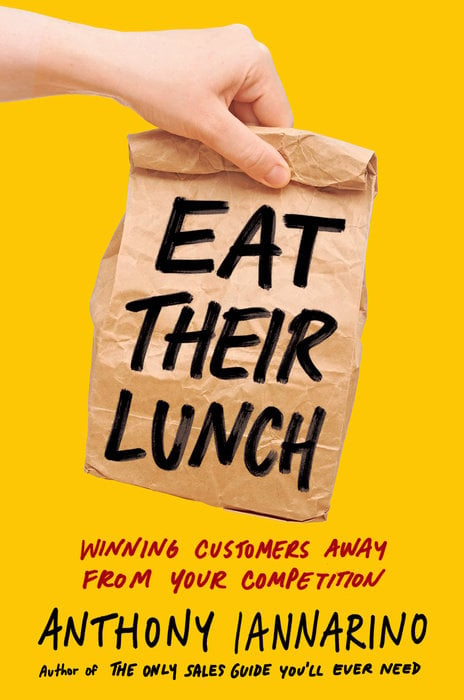The Gist:
- One of the keys to creating a preference to buy from you is meaningful differentiation.
- Over time, it will become more difficult to differentiate based primarily on your company or your solutions.
- The only reliable tool you have to differentiate yourself is the sales conversation you provide your clients.
Over time, all industries tend towards commoditization: as more companies enter the fray, it becomes difficult for buyers to tell them apart. When there is no meaningful difference between any two companies, buyers view one company as being as good—or bad—as another. That makes price a dominant consideration, especially in industries where it’s easy to swap one partner for a new one.
Here’s the lesson: the more you try to differentiate yourself on things that are not different in some meaningful way, the more you identify yourself as a commodity. Here are some ideas about differentiation and how you prove it: by demonstrating the difference in your sales conversation.


The Case of the Same Different Companies
Your client’s decision-makers and decision-influencers can have trouble discerning the differences between two companies if their approach is the same. Let’s imagine that you walk into your dream client’s boardroom to present to the senior leaders, who are deciding who to choose as their next supplier. There is a laptop on the table, but as you take the clicker, you realize that the client’s technology team mistakenly queued up your competitor’s slide deck instead. Could you make through the first eight slides of their deck without any trouble at all? Is there anything there beyond the all-too-standard argument that your company is trustworthy and would be the right partner to help the client improve their results?
Put another way, if you swapped roles with a salesperson at your competitor, how difficult would it be for you to present and recommend that your clients buy from your new company? How difficult would it be for your competitor to sell your solution? If the answer is that neither one of you would struggle, it may be difficult for your client to recognize any real differences.
You Two and Me Too
A lot of the time, different companies in an industry converge on what they believe to be the “best practices.” There is some period where people innovate and do things differently, until they reach consensus (official or otherwise) that one way is more effective than the other available choices. The more that companies share these best practices, the more similar they become, something detrimental to defining the differences between any two competitors you might select at random.
Likewise, the more factors that any two companies share in common, the more difficult it is for clients to recognize any real differences. The more you and your competitor can echo each other’s descriptions of a model or process with “me too,” the more certain your client will have trouble telling you apart. “Me too” claims tend to cancel each other out, creating no real differentiation.


Commoditizing Yourself
It’s easy to unwittingly commoditize yourself. You can look and sound so much like every other salesperson who darkens your dream client’s door that they don’t recognize any difference. You can ask the same questions that every other salesperson asks in discovery, replaying the not-so-greatest hits of the conversations your prospective client has had multiple times with multiple sales reps. You can present your company and your solution as the right choice until you’re blue in the face, but chances are your client will know the ending long before you get to your trusty “why us” slide.
You may not have recognized that your attempt to differentiate your company and your solution provides your client with a commoditized experience, making it more difficult to find anything that would cause a client to choose you over one of your many competitors. After all, everybody in your industry follows the same best practices, most of which create precious little value for their contacts. But the more you behave like a commodity, the more you’ll be treated like one: the only way to break free from that perception is to provide a different and better client experience.


Making Differences that Make a Difference
During a recent sales call, the senior leader asked me to tell him about my company. I politely explained that talking about my company would be a poor use of his time. He insisted that he was genuinely interested to learn about my company. Recognizing that this would create no differentiated value, I pivoted by saying, “The best way to tell you about my company is to tell you about the things that matter to us.” At that point, I started to share my insights, avoiding any plain facts about my company or our solution. After an hour and five minutes, the senior leader excused himself. His number two asked me, “How did you keep in this room for over an hour? He has never spent more than seven minutes with a salesperson.”
You can—and must—differentiate yourself in discovery by helping the client discover something about themselves, the nature of their problem, and how they might go about solving it. You can also differentiate your company by demonstrating how you are different, and by teaching your contacts that there are different delivery models, how the different choices that accompany those models do create different results. Ultimately, your goal is to triangulate your competition by taking a higher position.
The more you differentiate the sales conversation by creating greater value for the people trying to make a good decision for their future, the more you create a preference to buy from you and your company. In the end, all you really have to differentiate yourself is the sales conversation.
Do Good Work
- Are there more things alike than different about how you and your competitors do business?
- How do you create a compelling case to buy from you without speaking to your company or your solution?
- What do you do to create greater value than your competitors inside the sales conversation?

Essential Reading!
Get my 3rd book: Eat Their Lunch
"The first ever playbook for B2B salespeople on how to win clients and customers who are already being serviced by your competition."
Buy Now







.jpg?width=768&height=994&name=salescall-planner-ebook-v3-1-cover%20(1).jpg)


